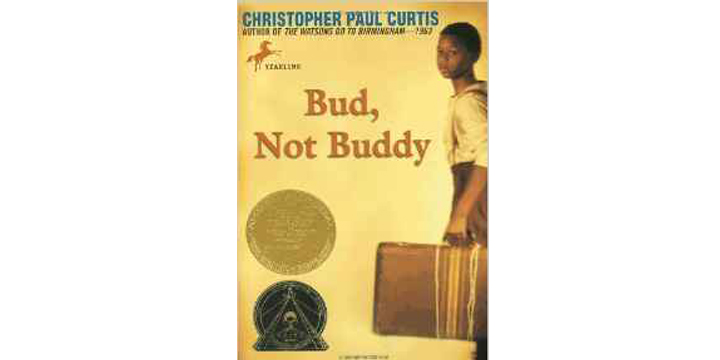Christopher Paul Curtis swept me away in Bud, Not Buddy by creating a genuine voice of a ten-year-old orphan boy who is naïve and innocent as well as courageous and persistent. So many authors could do so many things with a black orphan boy in the 1930’s. I’m pretty sure that most would write a book that is harsher than what Curtis wrote. Curtis defies the harshness of the world—the harshness of the depression—and gives us a viable reality filled with fulfillable hope. Doing this without oversimplifying or being insipid or sentimental is a real trick. Curtis succeeds.
As an adult reader I am fully aware of the ugliness in the world that surrounds Bud as he struggles, first, to survive an abusive foster home and, second, on the streets as he journey’s to meet the man he believes to be his father. The author doesn’t paint the world nicer than it is, but he uses Bud’s hopeful perspective of the world to keep the ugliness at a distance. This viewpoint, given in the delightful voice of Bud, is genuine and compelling.
Bud is a sweet kid, but a sweet kid who has learned about the duplicity in the adult world. He has made up rules that categorize what adults say and what they really mean. Hearing Bud site these rules as he meets and interacts with various adults is always a pleasure. Even if Bud is a sweet kid, he has learned how to lie in order to survive. Curtis succeeds at the difficult task of showing Bud lying throughout the book without making him dirty all while keeping Bud genuine. I can imagine the horrible things Faulkner would have done with Bud.
Bud has very little interaction with kids of any age throughout the book except for the unhappy scene with the foster family. The majority of the book has Bud interacting with helpful or not so helpful adults. Curtis paints delightful pictures of these adults using the ten-year-old’s eyes as a filter. While not spending a lot of time fleshing out these adult characters Curtis skillfully gives adult readers colorful insights that quickly adds depth to their personalities. While my kids enjoyed every minute of the book, and I was enjoying what they were enjoying, I was aware of a whole other level of conversation that only adults would hear. Only the best children’s authors are able to do this.
The climax and ending of Bud, Not Buddy could have been so easily bungled. I, as an author, held my breath as these moment sin the novel approached wondering if Curtis could pull it off. He did. I was impressed with his restraint from sentimentality while at the same time giving me full satisfaction. Bud, Not Buddy comes across as a simple book, but that is an illusion. It is full of drama, black history, and music. It is Curtis’s skillful use of a ten-year-old boy’s point of view that ignites the magic that combines richness and simplicity.

